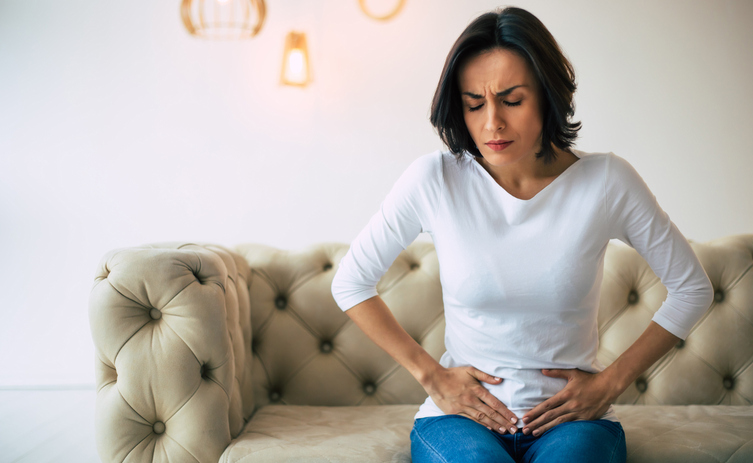Endometriosis: Silent and Often Misunderstood

Endometriosis is a chronic condition in women that often goes undiscovered and untreated. Many women often mistaken the pain from endometriosis to be “normal” or only associated with their menstrual cycle, therefore believing there’s no reason to seek treatment. If untreated, endometriosis can cause infertility, bloating, painful sex, and other difficulties.
Endometriosis occurs when tissue similar to the lining of the womb starts growing in areas outside the uterus. These growths, referred to as “endometrial implants,” can happen on ovaries, fallopian tubes, bowels, bladder, and other places in the pelvic area. The endometrial implants act like the lining of the uterus, breaking down and shedding blood during the menstrual cycle. This often results in pain, scarring and inflammation.
The degree of pain will vary from woman to woman but isn’t the only symptom associated with endometriosis. Any of these additional signs listed below can be an indication of endometriosis.
- Fertility trouble: Endometrial tissue growth on the fallopian tubes can cause blockages or crimps in tubes, making it difficult for an egg to be fertilized.
- Chronic pelvic pain: Pain beyond the time of a menstrual cycle can indicate endometriosis. Additionally, some women may experience painful sex, urination, or bowel movements.
- Abnormal menstrual cycle: Heavy bleeding, long periods, or even bleeding between periods, may be signs of endometriosis.
According to the American College of Obstetricians and Gynecologists, about 10% of women of reproductive age in America suffer from endometriosis. Endometriosis is most commonly discovered in women who are in their 30s and 40s; who have periods that are longer than seven days; who have not given birth and who have a mother or sister with the condition. In fact, if you have a female family member who has endometriosis, you’re five to seven times more likely to have endometriosis yourself.
If you are concerned that you may have endometriosis, start tracking symptoms and patterns. Note when the pain occurs, how long it lasts, and the severity of the pain. The more information you are able to provide a doctor, the more the doctor will be able to determine if endometriosis is likely. A pelvic exam or, in more severe cases, a laparoscopy will help diagnose it as well.
Treatment for Endometriosis
Although the cause of endometriosis is unknown, there are some definitive ways to treat the symptoms. In milder cases, pain relievers, such as nonsteroidal anti-inflammatory drugs, and hormonal therapy like birth control, can help decrease the flow and relieve the pain associated with menstruation. Making lifestyle modifications, like regular exercise, massage, and avoiding caffeine, alcohol, and gluten can also help women manage symptoms. If those don’t work, laparoscopic surgery may be recommended for women with severe symptoms or fertility issues. Surgery would remove the endometrial implants or growths to help women get pregnant. Patients should be aware that although surgery is a highly effective method for removing endometriosis, it can come back.
It’s important to understand and increase awareness of endometriosis. If you feel that something isn’t right, please talk to a doctor.
This article was written and provided by Cheyenne OBGYN, provider of personalized and compassionate health care in all aspects of obstetrical and gynecological care to women of all ages. Cheyenne OBGYN is located at 2301 House Avenue, Suite 400, Cheyenne, WY. For more information visit https://cheyenneobgyn.com/ or call (307) 634-5216.

Leave a Reply